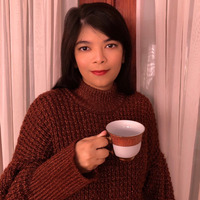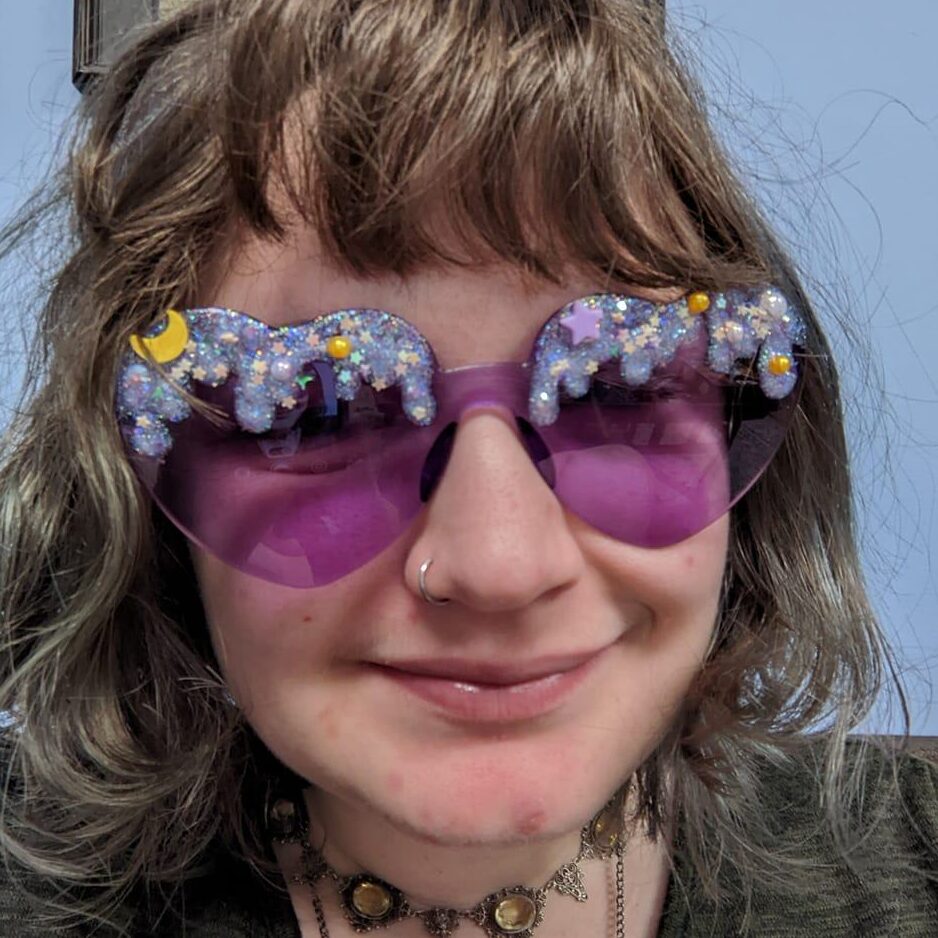Zahra Khan is basically Bangladeshi royalty, but being a princess doesn’t pay the bills in Paterson, New Jersey. While Zahra’s plans for financial security this summer involve working long hours at Chai Ho and saving up for college writing courses, Amma is convinced that all Zahra needs is a “good match,” Jane Austen-style.
Enter Harun Emon, who’s wealthy, devastatingly handsome, and … aloof. It’s nothing like the connection she has with Nayim Aktar, the new dishwasher at the tea shop, who just gets Zahra in a way no one has before. When Zahra finds out that Harun is just as uninterested in this match as she is, they decide to slowly sabotage their parents’ plans.
We spoke to debut author Priyanka Taslim about her debut novel The Love Match, anxiety rep, and her future writing plans. This interview has been edited and condensed for clarity.
Your YA romance deals with romance drama while also dealing in mental health from the lens of class and the immigrant experience. How do you balance lighthearted romance with these subjects?
Like Zahra, the protagonist of my novel, I’m a Bangladeshi American woman from a working class, immigrant family. Although I didn’t have a name for it as a kid, I started experiencing anxiety pretty early. In communities like mine, topics of mental health can be stigmatized, so treatment was out of the equation until after I graduated college and began working myself.
Instead, things like books, or envisioning the plot of a new story when I struggled to sleep because of anxiety, became a source of comfort for me. However, I never really saw characters like me, or the students I ultimately began to teach, in them as protagonists. Teens of color, working class teens, queer teens, and teens who experience mental health struggles deserve to see themselves as main characters in joyful stories, so I leaned into fun romcom tropes while letting aspects of their identities inform how they react to them in my own romcom.
I didn’t set out to write overtly about mental health, but those aspects of me bled into the characters anyway. While revising, I decided to lean into it a bit more with Harun in particular, because if The Love Match is a Pride & Prejudice reimagining of sorts, he’s the Mr. Darcy character and I feel like Mr. Darcy’s awkwardness lends itself to anxiety or some other sort of neurodivergence. Harun and Zahra, to a lesser extent, have a tendency to overthink things that prevents them from clearly communicating with their parents, so instead they concoct a plan to fake date.
Zahra’s crush Nayim, on the other hand, is the sort of character I always wished I could aspire to — charming, free-spirited, seemingly without a care in the world despite the things he’s tackling. It’s nice to know readers who have similar experiences can identify with the characters even if the exploration of mental health in the book is much more subtle than some of the other identities and themes.
What inspired The Love Match?
I visited a Pakistani-owned tea shop in early 2020. After that, I thought it might be fun to write a book that involved one. I’ve always wanted to write a book set in Paterson, New Jersey where I grew up, a love letter to its Bangladeshi community, so it was a no-brainer to set the shop there. When the pandemic happened, romance novels were my reprieve, so I really wanted to write one, especially one that involved matchmaking. Ultimately, the story came together when I combined all those things.
A lot of writers believe love triangles are difficult to do and balance out. Do you have advice in writing love triangles?
Love triangles can be challenging! For writers attempting one, I think it’s important to make sure YOU like both love interests so they seem like equally valid options for the protagonist. Oftentimes, writers foreshadow their preference for whoever is the endgame, and I think it’s partly because they never liked the other character much. They started out writing with a specific happily ever after in mind and that comes across in the text. Then, the “spare” inevitably does something deeply irredeemable, making the remaining option the ONLY option.
On the other hand, I even have an outline where Zahra chooses someone else at the end, so I tried never to write either boy off and never saw either Harun or Nayim as evil. Just like Zahra, they’re teenagers and make mistakes the way teenagers do. I could imagine a happy ending with either for Zahra, so ideally, that meant there was a push and pull to keep readers guessing until the end.
Are there particular books or stories that inspire your writing?
Authors like Jenny Han and Sandhya Menon were very inspirational to me for this book. Sandhya wrote one of the first romance novels I ever read where the protagonist and love interest are both South Asian. Similarly, Jenny Han’s To All the Boys I’ve Loved Before centered an Asian heroine in the midst of such fun tropes, like love triangles and fake dating. I never encountered that when I was a teen myself, but reading their books made me want that kind of story with a Bangladeshi protagonist, so I wrote my own.
Honestly, I consider all authors of color out there who chip away at the glass ceiling so more and more of us find space in publishing, to be so inspirational and important. My friend Adiba Jaigirdar is another such author. She’s Bangladeshi and queer and her own voices romances with Bangladeshi characters mean the world to me.
Do you have writing plans for the future?
I have two other books on my writing calendar already. My next YA is currently untitled, but subverts some of the dynamics in The Love Match in a fun way by being about a mischievous LITTLE sister rather than a responsible older sister. It was a challenge for me to get into that headspace because I’m the oldest and poured my experiences as the oldest daughter of immigrants into Zahra, but it was freeing in many ways too. She’s a bit of an Elle Woods or Cher Horowitz character and I haven’t seen much of that dynamic with Bangladeshi heroines. It also delves a little deeper into Bangladeshi history and some current issues facing the country, although like Zahra she’s still a diaspora kid. I hope readers who enjoyed The Love Match will be charmed by that book and its cast as well. This next YA will be released in 2025, about a year from now.
My adult debut, meanwhile, is a novel called From Mumbai, with Love that’s slated to release in either 2025 or 2026. It’s Crazy Rich Asians meets Succession, about a young woman who takes a DNA test after her mother’s death and learns her estranged father is not only still alive, but he has (1) a whole other family with three other adult children, (2) one is getting married, and (3) they’re competing for his business. She’s invited to meet them in Mumbai, and also finds herself torn between two handsome, enigmatic men with agendas of their own while there. It’s a family drama that also explores class, caste, love, grief, and more. In some ways, it’s a big divergence from what readers will find in my young adult novels, but I think there are shared threads in all my works.
Anything else you would like to be known?
Thank you so much for inviting me! I’m so excited to share The Love Match and future works with your readers.


